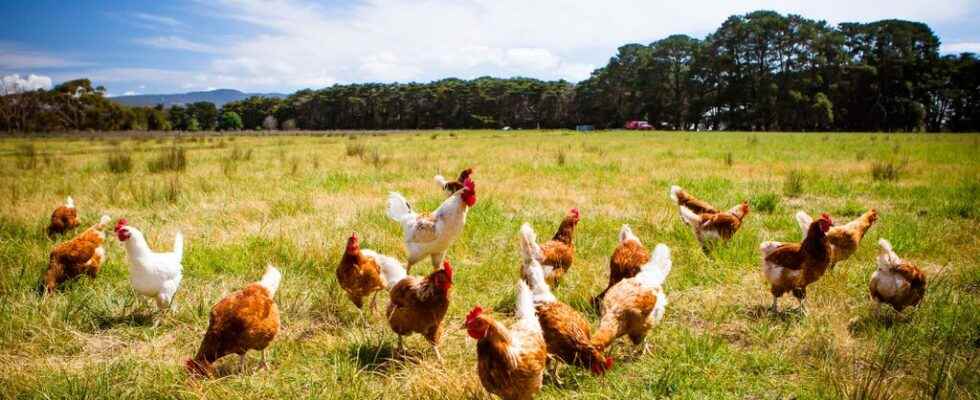Organic milk and eggs contain more PCBs and dioxins than those from the conventional sector, reveals a survey of 60 million consumers who dissected 130 organic food products.
The sector of organic foodnever looked so good. In 2018, more than 9 out of 10 French people said they had consumed organic products and nearly 3 out of 4 French people eat organic regularly (at least once a month), according to the Agence bio. A question arises: are all organic foods necessarily healthier than conventional products? A survey published in the last special issue of 60 million consumers provides a half-hearted answer. Some organic products such as milk, eggs and organic olive oil contain substances that are problematic for health.
For the survey, the collective analyzed 130 organic products in 14 food categories: eggs, milk, cereals, olive oils, cakes, spreads, pizzas, prepared meals, cold cuts, crisps, apples, bananas, yogurts and juices. of fruits. Organic apples and bananas were free of pesticides. On the other hand, some organic milk and eggs were higher in dioxins and PCBs than conventional milk or eggs.
Not totally “clean” organic food
Dioxins are polluting molecules from industrial waste, reminds 60 million consumers. PCBs are toxic substances whose use and manufacture have been banned in France since 1987. But these chemicals can accumulate in soils, including organic surfaces, facilitating the contamination of animals. “Organic milk and eggs contain more PCBs and dioxins than the others, because the animals are more often outside than in conventional farming”, specifies the site 60 million consumers.
What about organic olive oil? The magazine’s investigation points to the presence of phthalates – plasticizers recognized as endocrine disruptors – in some of them while some “conventional” oils contained “less or not at all”. These results show that the organic label does not mean “zero pollutant”.
In France, more and more farmers are converting to organic farming and “green” agricultural land is gaining ground: 2 million hectares are now grown organically, according to the Agence bio. The government has also made organic one of its hobbyhorses. Article 11 of the food bill aims to bring to 20% share of organic products served in institutional catering by January 1, 2022.
Read also
The French consume twice as much organic as 20 years ago
Smoothie, detox water, vegetable juice: which healthy drink to choose?
Raw food: four tips for taking it easy
Loading-widget
Loading-widget
Subscribe to the Top Santé Newsletter to receive the latest news for free
